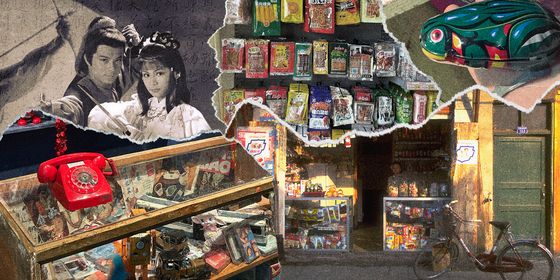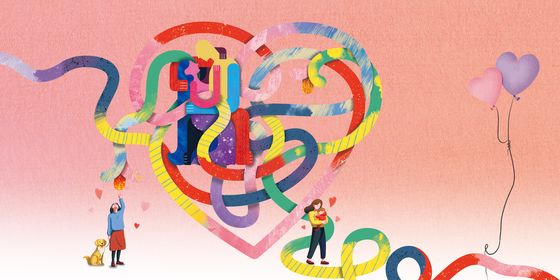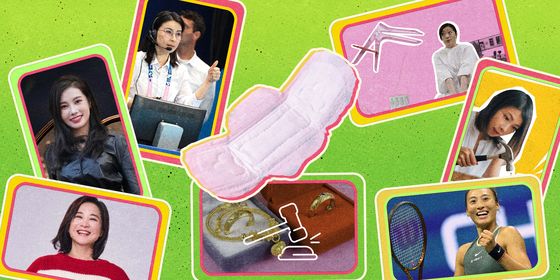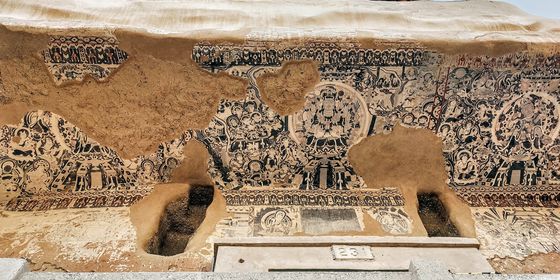Thoughts on sex, marriage, and death from a former Beijing "street kid"
Note from the author:
I don’t know the name of today’s subject. He says all of his friends call him “Big Mustache Wang San’er.” He lives in a house facing the street and sometimes sells groceries by his front door. If a neighbor passes by and says hi, he’ll offer up a cigarette and start a conversation.
He is tall, with a thick mustache. He wears a brown leather coat, a black vest, and a flower-patterned T-shirt. He seems to never be without a cigarette in his hand. It’s as if he’s a laopao’er (老炮儿, stereotypical old Beijinger) who walked straight out of the 1980s.
Wang San’er, 58 years old, from Beijing
I've experienced a lot in my life. It’s impossible to list everything. I don’t even remember some of the things myself.
I don’t consider myself an Old Beijinger, since my family has only been here since my grandparents’ generation. When I was 2 years old, my grandma would dip her chopstick in alcohol and give me a taste every time she drank. As a toddler, I lit cigarettes for her. She would then pass the cigarette to my grandpa, who would pass it to my dad, who would pass it on to my mom—the whole family would smoke. Under their influence, I also began drinking and smoking by the time I was in primary school.
I was a troublemaker at school. I would fire slingshots at the teacher’s butt, or sneak out of class to smoke. I dropped out in junior high school.
There were many street kids in Beijing back then. They stole bikes, or picked pockets—they had quick and agile hands. I knew all the tricks too, but I never stole anything.
I’m smart, so I could always find ways to make money. For a while, I made Buddha head sculptures out of plaster. I filled the inside with clay, covered it with golden powder, and sold them at the price of bronze. The golden powder only cost me 2 mao per kilo, but each sculpture could sell for 500 kuai.
When I wasn’t working, I was busying hitting on women (pai pozi in Beijing dialect).
To do this, you hung around on the street. Whenever a young woman passed by, you’d approach her and start a conversation. If you got lucky you’d get a response; most of the time you got an eye-roll.
Don’t laugh, but that was actually how I met my wife. She was working as an actress in a children’s theater. She wore her hair in braided pigtails and had on a floral-patterned skirt; she was so pretty. I waited every day on the street for her to get off work so I could talk to her. After several conversations, she realized that my heart was in the right place, and that I was pretty funny. That was how I won her heart.
I don’t mean to brag, but I’m pretty good with women. If I shaved off my mustache and changed my clothes, I’d look at least 10 years younger. A lot of women would fancy me still.
Even after I married, I still often fooled around with other women. Every human has desires—it’s as normal as eating and sleeping. Sex is very important, but love isn’t just sex. Love is a lot deeper. It’s love that makes you stay with your partner no matter what happens.
Even though I messed around with other women, my love toward my wife never weakened. She had breast cancer 10 years ago and the surgeons cut her left breast out, but that didn’t change a thing in our relationship. In my eyes, she’s still beautiful. I often tell her “You’re so beautiful. I love you so much.” Whenever I say that, she smiles as if she’s a young girl again.
In a flash, the two of us have spent half of our lives together. Our son now has two kids of his own. I stopped being a playboy long ago. Now I help take care of our grandchildren with my wife, bringing them to and from school. When the weather is nice, I set up a stall and sell some groceries outside of our place; I enjoy the fresh air and chatting to people.
I once had a near-death experience. Several friends and I rented an off-road vehicle and drove into the mountains. I was in the car when we crashed off one of the peaks and slid down the mountainside. I broke 10 ribs but survived. People said it was a miracle that didn’t kill me.
I think I know why that accident didn’t kill me—it just wasn’t my time yet.
After dying, everyone reports to Yama, the King of Hell. He’ll question you about how you died. Some might have drowned to death, some frozen to death. Sometimes, Yama might reply: “I can’t let you die because you haven’t experienced enough hardship in your life.” Then you’re sent back to the living world.
For example, sometimes people in car accidents get seriously hurt. They’ll lose an arm or a leg. But in the end, they are pulled back from the gates of hell. Why? Because they haven’t tasted enough “bitterness” in this world. Each of us needs to experience enough suffering: cold, hunger, pain and so on. Only then will Yama let you enter the afterlife.
With that thought in mind, I’m not afraid of death at all. I’ve experienced so much in my life. I’m ready to die anytime.
Cover image from VCG












